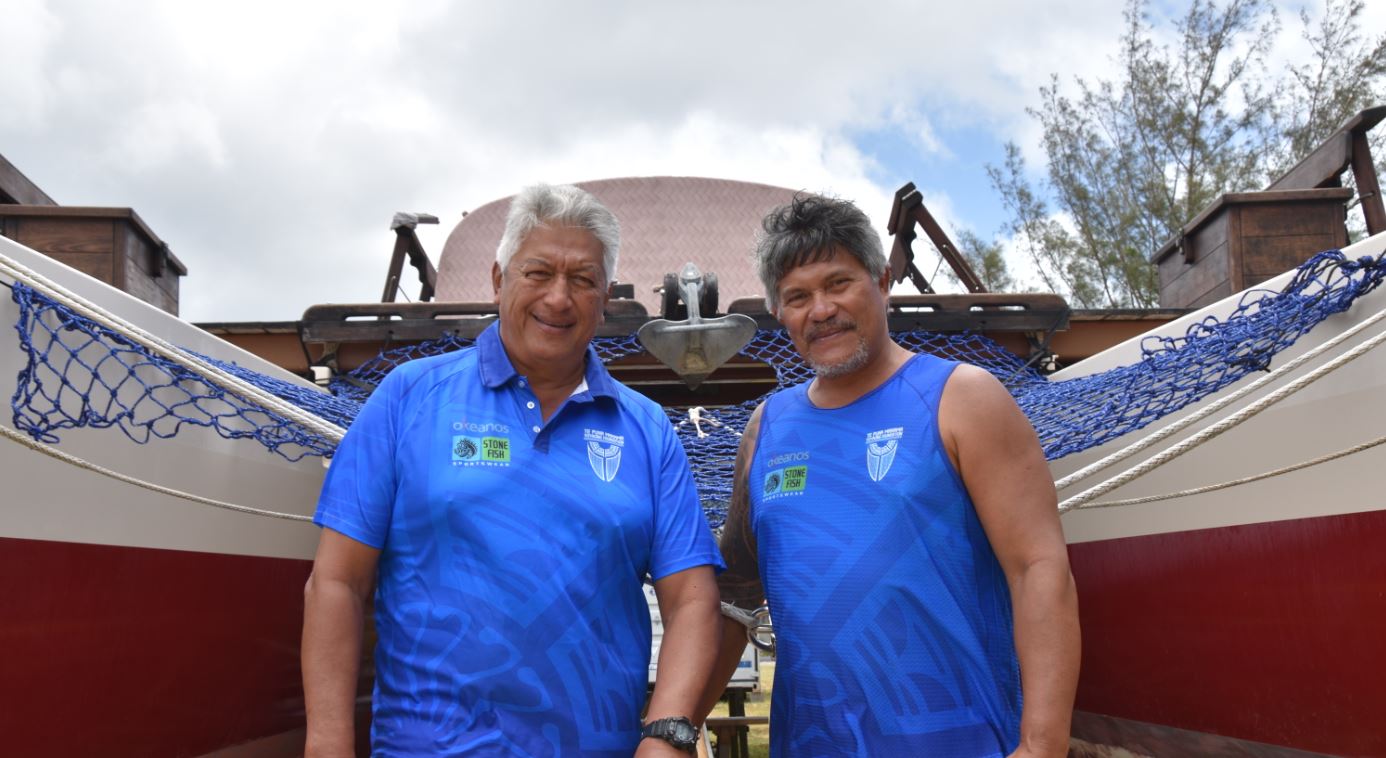Traditional master navigators lead mission to pass on the art of voyaging
Monday 5 December 2022 | Written by Melina Etches | Published in Culture, National

Traditional master navigators Tua Pittman and Peia Patai are passing on traditional voyaging knowledge to the next generation. 22112406
Traditional navigator Tua Pittman is back on the island taking a break from sailing around the world on Lindblad Expeditions – National Geographic cruise ships which deliver programmes in education, empower local artisans and protected wild areas.
“It’s really good to be back,” said Pittman who is one of the trustees of Te Puna Marama Voyaging Foundation, a charitable trust which aims to revive and preserve traditional wayfinding.
Te Puna Marama has received a canoe Vaka Motu Okeanos Waa'Qab in a bid to realise its goal. The vaka will be renamed “Paikea” next April, to start up an educational programme.
“This is perfect timing,” to start the education foundation of the ocean and ocean survival, and everything else that comes with tradition, he said.
Pittman was introduced to traditional voyaging at the age 19 when he joined the Hokulea, the Hawaiian vaka.
He is now working alongside traditional navigator Peia Patai, one of the co-founders of Te Puna Marama, and together they would like to entice more people to take up voyaging.
Peia was first introduced to traditional voyaging in Hawaii in 1991.
Both Pittman and Patai are master navigators taught by Hawaiian Nainoa Thompson, along with Pwo master navigator Mau Piailug – the Micronesian seafarer who is credited for sparking the Pacific voyaging resurgence.
Guided by Thompson and Piailug, Pittman and Patai were both trained in wayfinding which is the ancient art of navigating the open-ocean using only the stars, clouds, wind, waves and other patterns of nature.
“But, the time now in our roles is to pass on the knowledge to the next generation and through this foundation we want to make that happen,” said Pittman.
Discussions have been held with Corrective Services for Peia to start a “rehabilitation like programme” with inmates next year.
Patai said they believe that traditional knowledge and the voyaging foundation can help those who are detained inside prison and on parole.
“Hopefully this will inspire them to turn their lives around, because we have to understand them which I think is really important … they’re not all bad.
“It’s our moral responsibility to help out, their lives are important too,” said Patai.
The voyaging programme will start teaching participants from the basics – “from the very beginning”.
“Everyone has to understand it, you don’t just learn about navigation, you start from scratch, learning how to scrape the wood, sand the wood and look after the canoe.”
Participants will be encouraged to learn and speak Maori, learn the names of the constellations and to appreciate and respect traditions and culture.
“We’re getting on to teach the next generation the art and skills of voyaging,” said Patai.
Jennifer Kingsley, a National Geographic explorer and the field correspondent for Lindblad Expeditions, accompanied Pittman to Rarotonga to capture and tell his story and relationship to traditional voyaging.














































